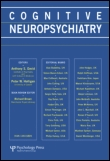
Cognitive Neuropsychiatry
Scope & Guideline
Elevating Discourse: High-Quality Research on Cognitive Disorders
Introduction
Aims and Scopes
- Cognitive Processes in Psychiatric Disorders:
Explores how cognitive deficits and alterations influence the manifestation and treatment of various psychiatric disorders, including schizophrenia, bipolar disorder, and dementia. - Neurocognitive Assessment and Methodologies:
Utilizes diverse methodologies, including neuropsychological tests, neuroimaging, and ecological momentary assessments, to evaluate cognitive functioning and its implications for psychiatric conditions. - Integration of Multidisciplinary Perspectives:
Encourages interdisciplinary research that combines insights from psychology, neuroscience, psychiatry, and social sciences to provide a comprehensive understanding of cognitive neuropsychiatry. - Focus on Hallucinations and Psychotic Experiences:
Investigation into the nature, causes, and implications of hallucinations and delusions across various psychiatric disorders, contributing to a deeper understanding of psychotic experiences. - Cognition and Emotion Interplay:
Analyzes the interplay between cognitive processes and emotional regulation, particularly in the context of mood disorders and anxiety, highlighting how these interactions affect overall mental health.
Trending and Emerging
- Interdisciplinary Approaches to Cognitive Neuropsychiatry:
There is a growing trend towards integrating perspectives from various disciplines, including neuroscience, psychology, and sociology, to better understand the multifaceted nature of cognitive and psychiatric disorders. - Focus on Hallucinations and Perceptual Experiences:
An increasing number of studies are dedicated to understanding hallucinations, including their cognitive underpinnings and emotional impacts, reflecting a heightened interest in their relevance across different psychiatric conditions. - Cognitive Profiles and Psychopathology:
Emerging research emphasizes the exploration of specific cognitive profiles associated with various psychopathologies, revealing how distinct cognitive patterns can inform diagnosis and treatment. - Impact of Social and Environmental Factors on Cognition:
Research is increasingly focusing on how social dynamics and environmental influences shape cognitive functioning and psychiatric symptoms, highlighting the importance of context in understanding mental health. - Neurocognitive Mechanisms Underlying Psychotic Experiences:
There is a trend towards investigating the neurocognitive mechanisms that contribute to psychotic experiences, including delusions and hallucinations, paving the way for more targeted therapeutic interventions.
Declining or Waning
- Focus on Traditional Neuropsychological Testing:
There is a noticeable decrease in studies solely relying on traditional neuropsychological assessments without integrating newer methodologies or interdisciplinary approaches, which may limit understanding of complex cognitive profiles. - Single-Dimensional Studies of Cognitive Functioning:
Research that examines cognitive functioning in isolation, without consideration of emotional, social, and contextual factors, is becoming less frequent, indicating a shift towards more holistic approaches. - Exploration of Non-Clinical Populations:
The focus on non-clinical populations regarding cognitive and neuropsychiatric symptoms seems to be declining, suggesting a move towards more clinically relevant research that addresses specific disorders. - Overemphasis on Diagnostic Categorization:
The tendency to categorize cognitive dysfunction strictly within traditional diagnostic frameworks is waning, as researchers increasingly recognize the need for more nuanced understanding that transcends rigid classifications.
Similar Journals

JOURNAL OF COGNITIVE NEUROSCIENCE
Transforming knowledge of the brain into transformative insights.Welcome to the JOURNAL OF COGNITIVE NEUROSCIENCE, a premier publication in the field of cognitive neuroscience, published by the esteemed MIT PRESS. Since its inception in 1989, this journal has been at the forefront of advancing our understanding of the neural mechanisms underlying cognitive processes, boasting an impressive convergence period through 2024. With its Q1 ranking in the 2023 cognitive neuroscience category, it stands out among 115 peers, indicating its critical role in shaping contemporary research. The journal offers a comprehensive array of research articles, reviews, and methodologies aimed at researchers, professionals, and students alike, facilitating the exploration of complex cognitive functions. While not an open-access journal, it provides essential insights and significant contributions to the neuroscience community, making it an invaluable resource for anyone keen on delving into the intricacies of the human brain.

NEUROPSYCHOLOGY
Exploring the Intricacies of NeuropsychologyNEUROPSYCHOLOGY, published by the American Psychological Association, is a leading journal dedicated to advancing the field of neuropsychology and physiological psychology. With an ISSN of 0894-4105 and an E-ISSN of 1931-1559, the journal has established itself as a critical resource for researchers, clinicians, and students interested in the intersection of neuroscience and psychological practice. Recognized as a Q1 journal in its category for 2023, it holds a prominent position within the top quartile of neuropsychology journals, reflecting its rigorous peer-review process and high-quality publications. Covering a wide spectrum of topics from cognitive functions and brain-behavior relationships to clinical assessments and interventions, NEUROPSYCHOLOGY plays a pivotal role in disseminating significant research findings that enhance our understanding of the brain's complexities. Although this journal does not currently offer Open Access, it remains highly regarded for its contribution to the scientific community, as evidenced by its strong Scopus ranking of #34/76 in neuropsychology. As it marks over three decades of publication from 1990 to 2024, NEUROPSYCHOLOGY continues to be an essential publication for those committed to exploring and improving the field.
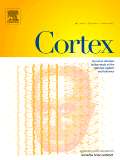
CORTEX
Advancing Understanding of the Brain and BehaviorCORTEX is a premier international journal published by Elsevier Masson, focusing on the cutting-edge areas of cognitive neuroscience, psychology, and neurology. With an impressive impact factor that places it in Q1 quartiles across multiple categories such as Cognitive Neuroscience and Neuropsychology, this journal serves as a vital resource for researchers, clinicians, and students alike. Established in 1964, CORTEX has continued to excel in disseminating high-quality scholarly work, offering insights that significantly enhance our understanding of the brain's functioning and behavior. Although not an open-access publication, it provides various access options to ensure the dissemination of knowledge is as wide-reaching as possible. As the field of cognitive psychology evolves, CORTEX remains at the forefront, fostering an environment for interdisciplinary collaboration and innovation. Researchers seeking to stay engaged with the latest advancements will find CORTEX an indispensable tool for their professional development.
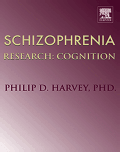
Schizophrenia Research-Cognition
Innovating research for a clearer understanding of schizophrenia.Schizophrenia Research-Cognition is an esteemed journal dedicated to advancing the understanding of cognitive aspects of schizophrenia and related mental health disorders. Published by Elsevier, this Open Access journal has been a pivotal platform since its inception in 2014, facilitating the dissemination of high-quality research findings to a global audience. With a notable impact factor and categorized in the Q2 quartile for both Cognitive Neuroscience and Psychiatry and Mental Health, it ranks among the top journals in these fields, currently positioned at #171 out of 567 in Psychiatry and at #40 out of 115 in Cognitive Neuroscience according to Scopus metrics. Located in the United States, and published under the auspices of Elsevier, the journal aims to provide an insightful forum for researchers, clinicians, and students interested in the cognitive underpinnings of schizophrenia, promoting innovative research that bridges the gap between cognitive neuroscience and clinical application. Schizophrenia Research-Cognition's commitment to open access ensures wide-reaching impact and engagement from the research community and beyond.
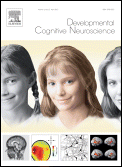
Developmental Cognitive Neuroscience
Illuminating the pathways of brain development and behavior.Developmental Cognitive Neuroscience is a leading interdisciplinary journal published by ELSEVIER SCI LTD, dedicated to advancing the field of cognitive neuroscience with a specific focus on the developmental aspects of brain function and behavior. Since its inception in 2011, this Open Access journal has continued to thrive, gaining significant recognition with a remarkable impact factor that places it in the Q1 category of cognitive neuroscience, ranking 22nd out of 115 in Scopus. This enhances its visibility and accessibility to a global audience, including researchers, clinicians, and students keen on exploring the intricate relationship between cognitive development and neurological processes. The journal embraces a wide array of topics, from the impact of early life experiences on cognitive outcomes to neurodevelopmental disorders, fostering an enriching platform for disseminating high-quality research and innovative findings. As it progresses towards 2024, Developmental Cognitive Neuroscience remains pivotal in shaping future research and understanding in the field.

Zeitschrift fur Neuropsychologie
Enhancing Understanding through Rigorous ResearchZeitschrift für Neuropsychologie, published by HOGREFE AG in Switzerland, stands as a vital resource for scholars and practitioners in the fields of neuropsychology, cognitive neuroscience, and psychiatry. With an ISSN of 1016-264X and E-ISSN 1664-2902, this journal aims to disseminate high-quality research that enhances understanding of cognitive processes and their implications for mental health. While currently classified in the fourth quartile across relevant categories, including Cognitive Neuroscience and Neuropsychology, it offers valuable insights that contribute to the emerging discourse in these areas. By publishing both empirical studies and theoretical papers, it encourages interdisciplinary dialogues among researchers and clinicians. Although the journal is not Open Access, its role in advancing neuropsychological research is significant, fostering academic linkages from its base in Bern, Switzerland. By continually focusing on the latest advancements and fostering innovative approaches within the field, Zeitschrift für Neuropsychologie remains a crucial platform for those committed to exploring the complexities of the human mind.

NEUROSCIENCE AND BIOBEHAVIORAL REVIEWS
Illuminating the complexities of the brain-behavior connection.NEUROSCIENCE AND BIOBEHAVIORAL REVIEWS, published by PERGAMON-ELSEVIER SCIENCE LTD in the United Kingdom, serves as a leading interdisciplinary platform for the dissemination of pioneering research and reviews in the realms of Neuroscience, Behavioral Neuroscience, Cognitive Neuroscience, and Neuropsychology. With an impressive impact factor reflected in its Q1 ranking across multiple categories for 2023, the journal is recognized for its rigorous peer-reviewed content that influences the advancement of scientific knowledge in behavioral and cognitive research. An essential resource for researchers, professionals, and students alike, the journal emphasizes the exploration of complex neural mechanisms that underlie behavior and cognitive processes. Despite being a subscription-based publication, the journal's extensive archive from 1978 to 2024 fosters a wealth of knowledge designed to inspire and facilitate future advancements within the field.
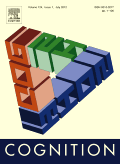
Cognition
Fostering Interdisciplinary Collaboration in CognitionCognition, published by Elsevier, is a leading journal dedicated to the exploration and advancement of knowledge in the multifaceted fields of cognitive neuroscience, cognitive psychology, and linguistics. Since its inception in 1972, this prestigious journal has established itself as a prominent platform for disseminating innovative research and critical reviews, achieving a remarkable Q1 ranking across various relevant categories, including Cognitive Neuroscience and Developmental Psychology, as per the 2023 metrics. With a focus on providing insights that are vital for researchers, professionals, and students alike, Cognition boasts an impressive standing in the academic community, evidenced by its high Scopus rankings which place it in the top percentiles in several disciplines. Researchers interested in the cognitive processes underlying human thought, language, and behavior will find Cognition an invaluable resource that publishes cutting-edge findings and fosters interdisciplinary collaboration. Though it operates under a traditional access model, the breadth and depth of its content ensure it remains integral to advancing cognitive science.

COGNITIVE THERAPY AND RESEARCH
Connecting Researchers and Practitioners in Psychology.Cognitive Therapy and Research is a prestigious journal dedicated to advancing the field of cognitive therapy and its intersections with research in psychology. Published by Springer/Plenum Publishers, this journal has established a significant impact, reflected in its impressive Q1 rankings in both Clinical Psychology and Experimental and Cognitive Psychology, as well as its placement within the 80th percentile of Scopus rankings for Experimental and Cognitive Psychology. With a history spanning from 1977 to 2024, Cognitive Therapy and Research addresses crucial advancements and findings in cognitive therapy, providing a vital platform for researchers, professionals, and students alike. While the journal is not currently open access, it remains an essential resource for those seeking to deepen their understanding of cognitive processes and therapeutic techniques. Situated in the vibrant academic landscape of the United States, the journal reflects a commitment to high-quality research that influences practice and theoretical frameworks within clinical psychology.

Journal of Experimental Psychopathology
Exploring the Depths of Psychological DisordersJournal of Experimental Psychopathology, published by SAGE Publications Ltd, stands as a pivotal platform for advancing the understanding of psychological disorders and their underlying mechanisms. Established in 2015, this open access journal encourages a broad dissemination of research findings, adhering to its mission to foster innovation in the fields of Clinical Psychology and Psychiatry and Mental Health. With an established impact recognized in its Q3 quartile rankings for both fields as of 2023, the journal aims to bridge the gap between experimental research and clinical application. Researchers, professionals, and students are invited to engage with cutting-edge studies, all while benefiting from the journal's commitment to open access publishing since 2018, ensuring that knowledge is easily accessible to all. The journal’s office is strategically located in London, UK, serving a global academic community keen on exploring the complexities of psychopathology.